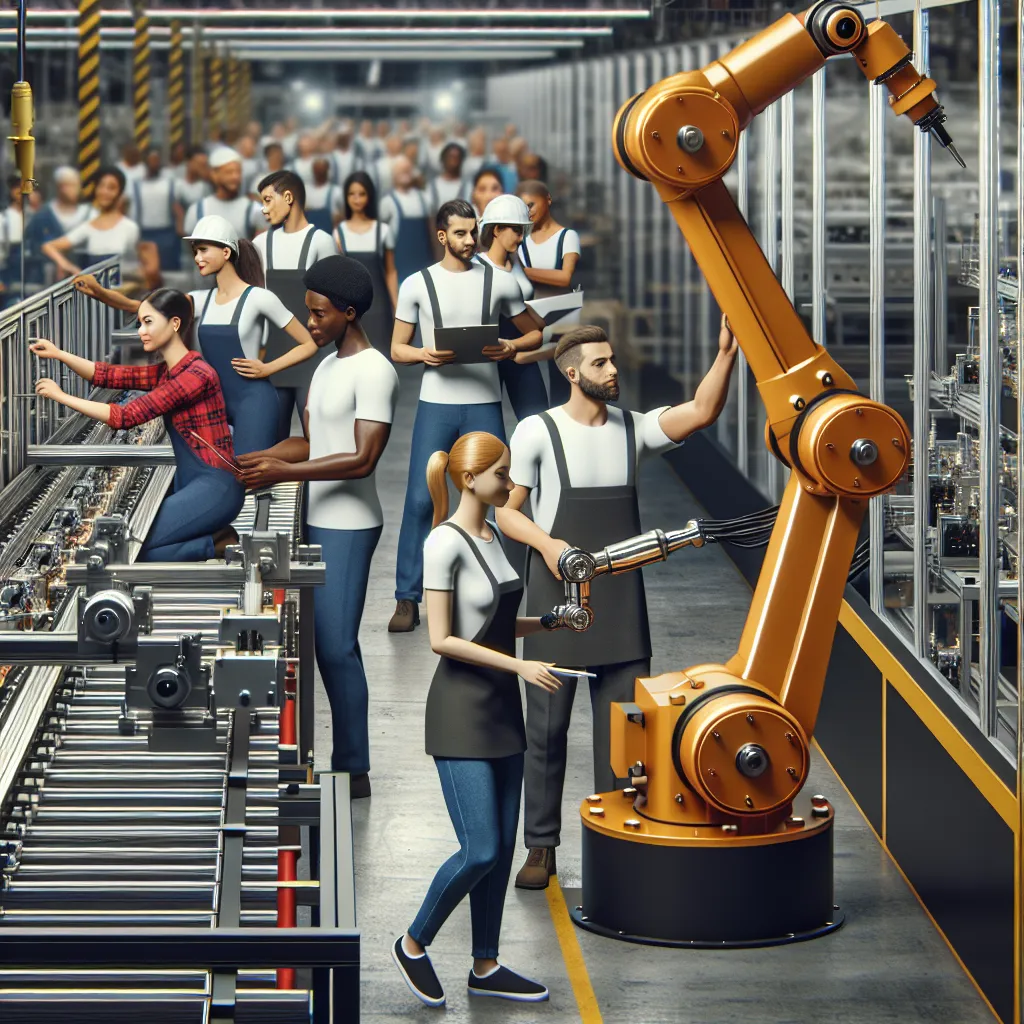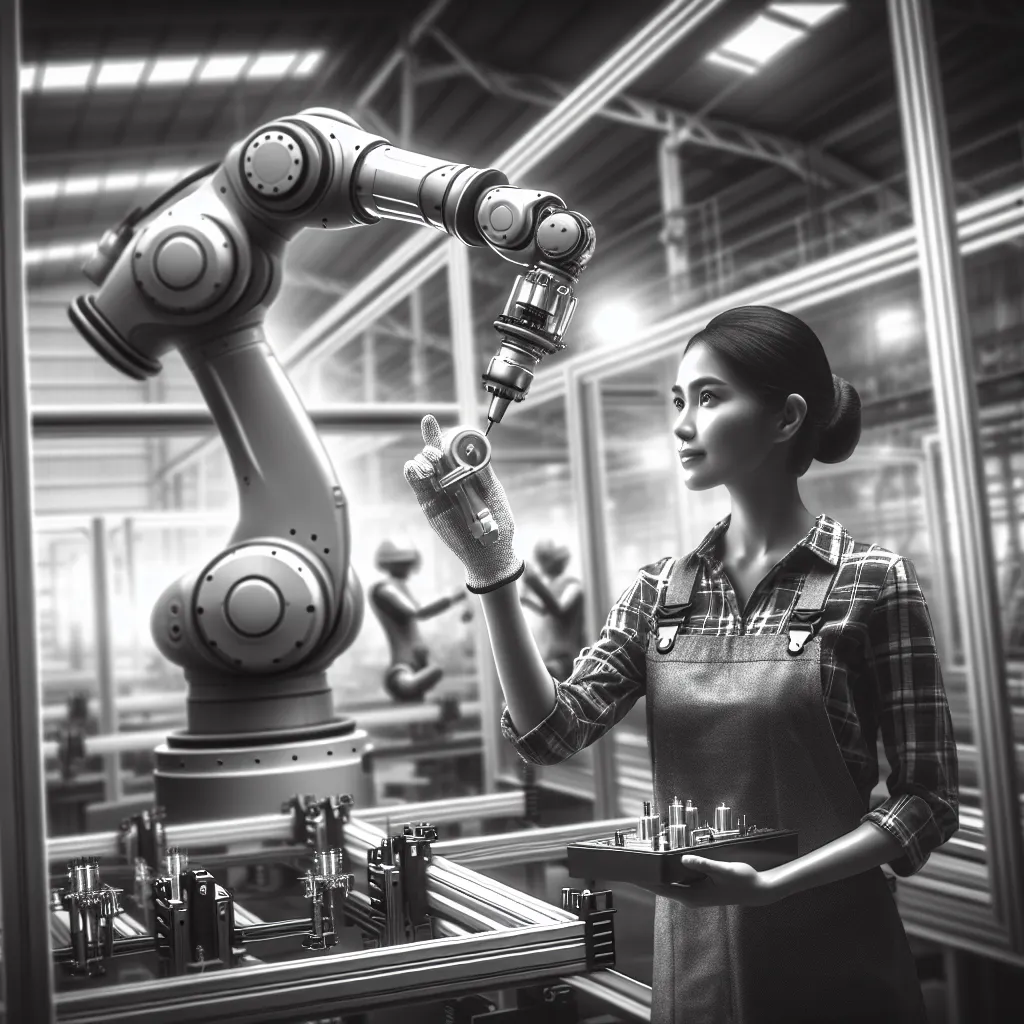The Impact of Automation on Manufacturing and Production
Automation has been revolutionizing industries across the board, and its impact on manufacturing and production has been particularly profound. With the integration of advanced technologies such as robotics, artificial intelligence, and machine learning, the manufacturing sector has experienced a significant transformation in recent years.
One of the most noteworthy impacts of automation on manufacturing and production is the substantial increase in efficiency and productivity. Automated systems have streamlined the production processes, allowing for higher output levels while minimizing the margin of error. This has ultimately led to cost savings and improved resource utilization for manufacturing companies.
Furthermore, automation has enabled manufacturers to enhance their product quality and consistency. By employing precision robotics and automated assembly lines, companies can ensure that each product meets meticulous standards, reducing defects and variability in the production line.
Another critical aspect of automation in manufacturing is the ability to adapt to changing consumer demands swiftly. Advanced analytics and data-driven insights allow for agile production planning and just-in-time inventory management, enabling manufacturers to respond promptly to market fluctuations and customer preferences.
Despite the numerous advantages, the integration of automation in manufacturing and production has raised concerns about the potential displacement of human workers. While some repetitive and hazardous tasks have been taken over by machines, the need for skilled technicians, engineers, and programmers to design, maintain, and oversee automated systems has also increased, creating new employment opportunities.
In conclusion, the impact of automation on manufacturing and production has been multifaceted, leading to improvements in efficiency, quality, and flexibility, while also reshaping the workforce requirements. As technology continues to advance, the manufacturing industry will undoubtedly undergo further transformative changes driven by automation.
Transforming Business Operations: The Role of Automation
Automation is reshaping industries across the globe, transforming the way businesses operate and revolutionizing entire processes. In today’s fast-paced world, many companies are leveraging automation to streamline their operations, improve efficiency, and reduce costs. The role of automation in transforming business operations cannot be overstated, as it enables organizations to optimize their workflows and achieve higher levels of productivity.
By implementing automation technologies, businesses can automate repetitive tasks, such as data entry, report generation, and inventory management, allowing employees to focus on more strategic and value-added activities. This shift not only boosts productivity but also enhances employee satisfaction and engagement. Additionally, automation plays a crucial role in improving the accuracy and consistency of business operations, minimizing errors and reducing the risk of costly mistakes.
Furthermore, automation is revolutionizing customer interactions and service delivery. Chatbots and automated customer service systems are increasingly being employed to handle inquiries, provide support, and streamline the overall customer experience. This results in faster response times, 24/7 availability, and personalized interactions, ultimately leading to higher customer satisfaction and loyalty.
From manufacturing and logistics to finance and marketing, automation is driving significant changes in every industry. Businesses that embrace automation gain a competitive edge by being able to operate more efficiently, deliver higher quality products and services, and respond to market demands more swiftly. As technology continues to advance, the role of automation in transforming business operations will only become more pronounced, leading to a new era of streamlined, agile, and proactive enterprises.
The Future of Work: How Automation is Shaping Industries
The future of work is being shaped by the rapid advances in automation across various industries. Automation is revolutionizing the way tasks are performed and has the potential to significantly impact the workforce. Industries such as manufacturing, transportation, and customer service are experiencing major transformations due to the implementation of automation technologies.
One of the key aspects of automation’s impact on the future of work is the shift in job roles and skill requirements. As repetitive and routine tasks become automated, there is a growing demand for employees with skills in programming, data analysis, and machine learning. This shift is reshaping the job market and creating new opportunities for workers to adapt and upskill in order to remain competitive in the workforce.
Furthermore, automation is enhancing efficiency and productivity in various industries. With the use of robotics and artificial intelligence, businesses can streamline operations, reduce errors, and optimize processes. This not only leads to cost savings for companies but also allows employees to focus on more complex and strategic tasks that require human creativity and problem-solving abilities.
However, the widespread adoption of automation also raises concerns about job displacement and the need for retraining and reskilling programs. As certain tasks become automated, there is a growing imperative for proactive measures to support displaced workers and ensure a smooth transition to the new employment landscape.
In conclusion, the future of work is intricately linked to the widespread adoption of automation technologies. While automation is revolutionizing industries and driving increased efficiency, it is also reshaping the workforce and creating new challenges that need to be addressed. As industries continue to embrace automation, it will be crucial to implement strategies that support workers in adapting to the evolving job market.




